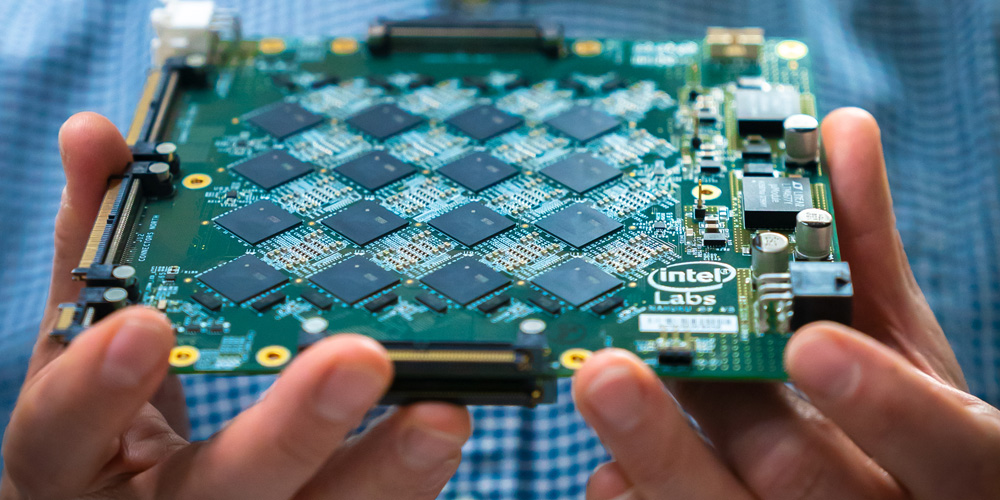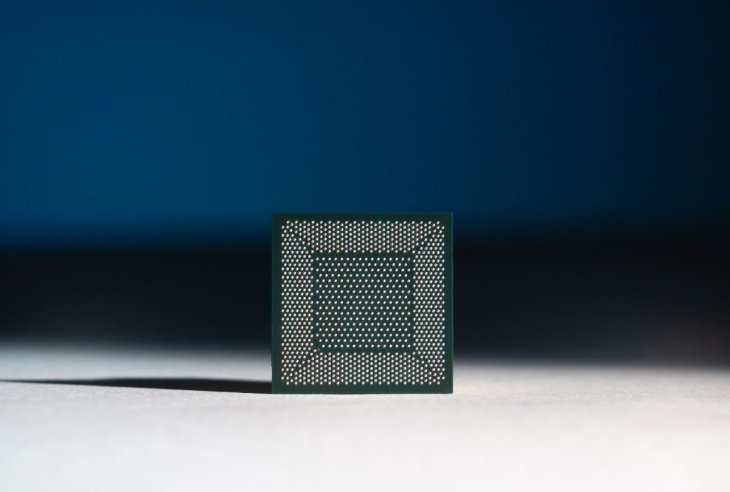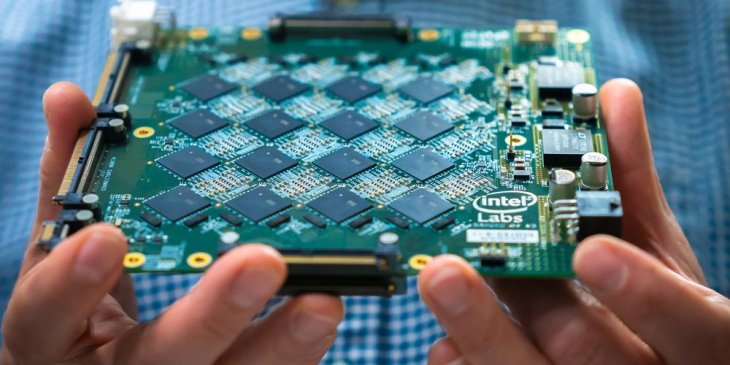Intel's Brain-Like Computer Packs 8 Million Digital Neurons
Anita - Jul 29, 2019

Intel uses 64 Loihi chips to power its computer system with 8 million digital neurons called Pohoiki Beach, an important step towards a digital equivalent to a human brain
- This South Korean YouTuber Is The Result Of Deepfake Technology
- Intel Announced 11th-Gen Rocket Lake Processors, Rivaling AMD Ryzen Chips
- Machine Learning Is Better Than Humans In Predicting Stock Market Behavior, Report
Humans brains have around 86 billion neurons or interconnected brain cells. Now Intel has successfully built a computer system with 8 million digital neurons, notable progress towards making an equivalent to our own brains.
This chipmaker packs the system dubbed Pohoiki Beach with 64-Loihi chips made by its Intel Labs. It is believed that Pohoiki will be offered to scientists who can help it matures the tech and commercialize it. The eight million neurons of Pohoiki Beach marks an important milestone towards the goal of Intel to achieve 100 million this year.

Rich Uhlig, Director, Intel Labs who introduced this system at Detroit-based DARPA Electronics Resurgence Initiative summit, said:

The effort suggests the way technology, which had difficulty boosting regular chipsets, is progressively inspired by human brains. Our gray matter needs oxygen and food to work; however, the brains use around 20Wh of power only, as much as a modestly powerful processor.
Products such as iPhone chips from Apple have already had circuitry to boost brain-inspired tech; however, the “neuromorphic” Loihi project of Intel is a vital mark to mimic the way real brains work. It comprises of the digital axon equivalents for the signal transmission of neurons to their neighbors, the dendrites receiving those signals and the synapses connecting the two.

Scientists have already taken advantage of the systems for several tasks such as controlling a prosthetic leg, playing football, and simulating the skin’s tactile sensing, as per Intel.
The improvements in processor speed are becoming more difficult to achieve nowadays due to some issues like electronics miniaturization gradually growing harder and the rise in power consumption. Therefore, chip manufacturers are shifting their attention to dedicated chips which are faster at some certain operations, instead of general-purpose central processing units (CPUs). One of the main aspects for such specialization is GPUs (graphics processing units).
The U.S Defense Advanced Research Projects Agency (DARPA) is contributing to boost chip advancements and several other projects for machine learning, security, and photonics, to name a few.
Featured Stories

Gadgets - Jul 21, 2025
COLORFUL Launches iGame Shadow II DDR5 Memory for AMD Ryzen 9000 Series

Gadgets - Jun 23, 2025
COLORFUL SMART 900 AI Mini PC: Compact Power for Content Creation

Review - Jun 18, 2025
Nintendo Switch 2 Review: A Triumphant Evolution Worth the Wait

Gadgets - Jun 18, 2025
Starlink: Why It’s a Big Deal for U.S. Internet in 2025

Gadgets - Jun 17, 2025
How Custom PC Setups Support India's Esports Athletes in Global Competition

Gadgets - Jun 12, 2025
Lava Prowatch Xtreme Launches with Google Fit Integration

Gadgets - Jun 07, 2025
Fujifilm Instax Mini 41 Launches in India: Stylish Instant Camera Now Available...

Mobile - Jun 07, 2025
Realme C73 5G Launches in India: Budget 5G Phone Starts at ₹10,499

Gadgets - Jun 07, 2025
OnePlus 13s Makes Indian Debut: Compact Flagship Brings Premium Features at...

Gadgets - Jun 07, 2025
Comments
Sort by Newest | Popular